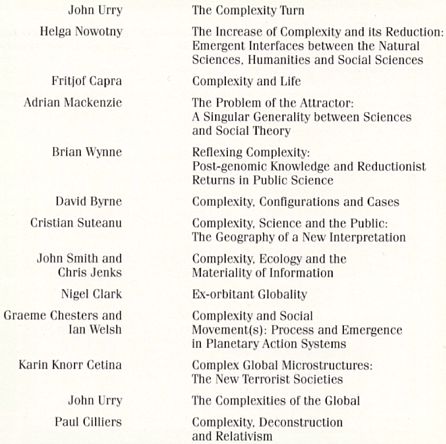 |
This issue investigates the complexity turn in the social and cultural
sciences which derived from the development of chaos and complexity theory,
non-linearity and dynamical systems analysis in the scientific disciplines.
The articles set out to rethink the relationships between the physical and
the social, and examine how complexity research moved into popular science,
influenced social and cultural analysis, and shaped the tools of social
science. The remaining articles examine complexity in relation to
globalisation, looking at global systems, global relationships and global
order. For the social and cultural sciences, complexity analysis brings out
the coincidence of order and disorder in the various systems.
To view the publisher's online table
of contents with abstracts, please click on this
external
link.
|
